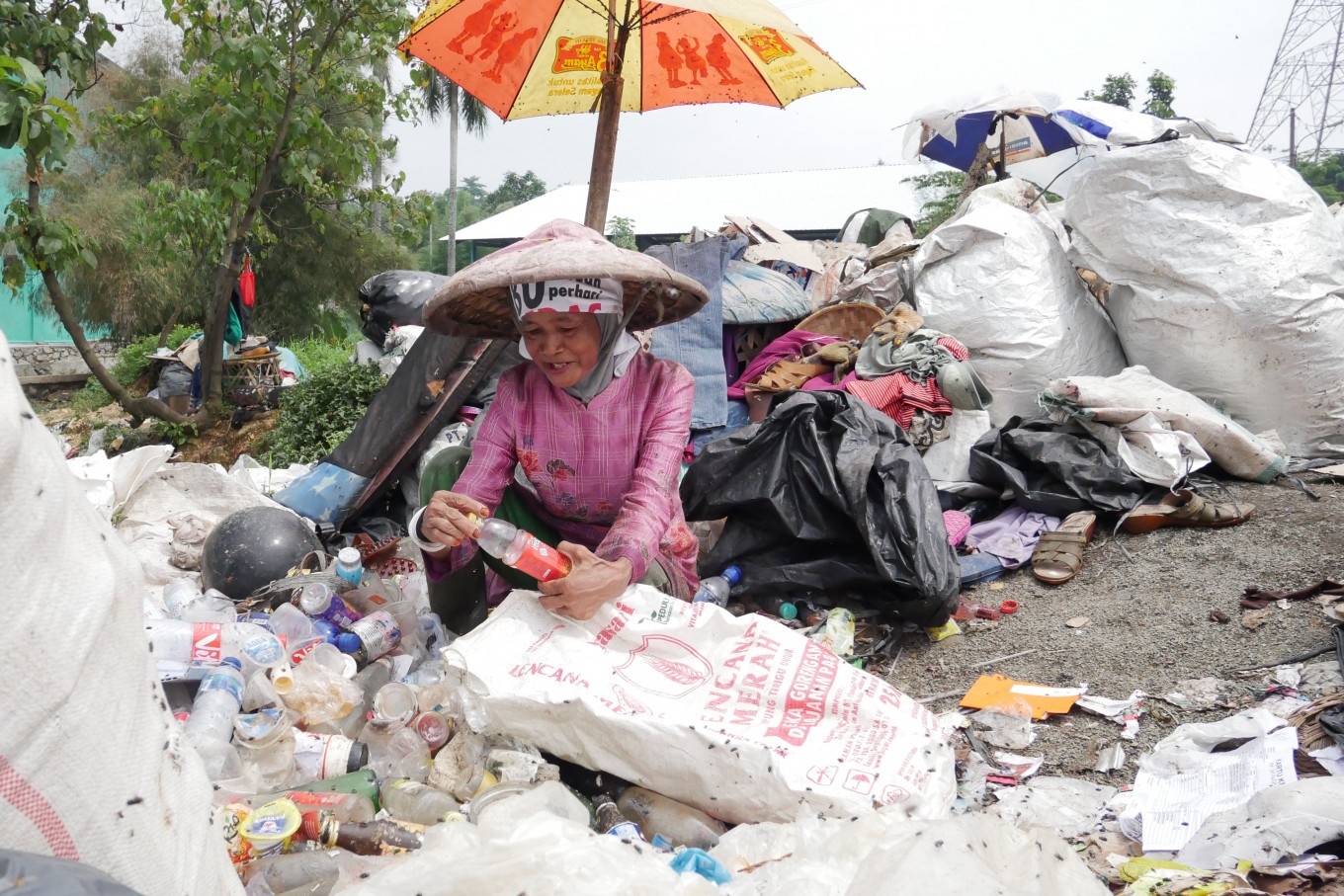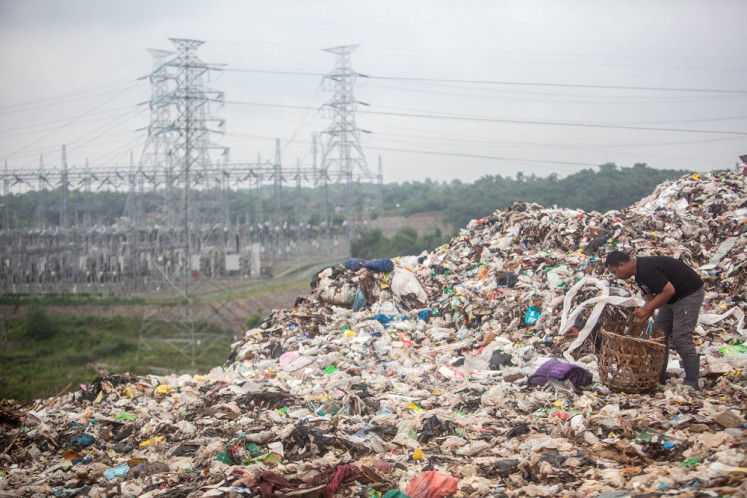Informal waste collectors key to new recycling era
The recycled packaging industry association says that formalizing the informal waste sector is key to scaling up Indonesia's waste management toward a plastics economy, while one of Oceania's largest bottling companies leads the charge with a new recycling plant that embraces waste pickers and their welfare.
Change Size

B
usinesses are aiming to lift the lives of informal waste pickers, the backbone of Indonesia’s waste management system, while optimizing the circular economy in the packaging sector.
Karyanto Wibowo, chairman of the Packaging and Recycling Association for Indonesia’s Sustainable Environment (PRAISE), said that formalizing the informal waste sector would be ideal for the future of waste management in the country.
Formally employing scavengers, he said, entailed providing them with the proper equipment, fixed incomes and good access to health care and education. It would also help eliminate child labor in the sector.
“As individual [member] companies and as an alliance, what PRAISE can do is to create an inclusive business model that can help waste pickers meet their basic needs,” Karyanto told The Jakarta Post in an interview on Friday, April 23.
He added that the association already required its members to push their partnering waste collection facilities to formally employ scavengers.
“But of course, doing this is not as easy as flipping a switch. We need the government’s support and commitment, too,” Karyanto said.
Read also: Plastic recycling industry needs more government support
The Environment and Forestry Ministry’s waste management director, Novrizal Tahar, said in December that local waste collection was dominated by the informal sector, with scavengers collecting 354,900 tons of plastic waste per year, while waste banks and government-owned facilities collected just 69,900 tons per year in comparison.
Despite their large contribution, waste pickers often earn below minimum wage and face harsh and hazardous working conditions with little to no protection.
Beverage distributor Coca-Cola Amatil Indonesia recently started construction on a recycling facility for polyethylene terephthalate (PET) bottles in Bekasi, West Java. The new facility aims to process 25,000 tons of plastic each year in partnership with trash collectors in the local community.
Amatil Indonesia, along with plastic packaging maker Dynapack Asia, announced on April 5 the construction of the 20,000-square-meter recycling facility, a A$50.51 million (US$39 million) investment.
The beverage distribution and bottling giant’s subsidiary PT Amandina Bumi Nusantara is to run the as yet unnamed recycling facility, while non-profit foundation Mahija Parahita Nusantara is to manage the collection centers that work with the facility, including the welfare of the centers’ waste pickers and small-scale waste collectors.

Coca-Cola Amatil Indonesia president director Kadir Gunduz said Mahija Parahita would ensure that its partners adhered to human rights principles such as eliminating child labor and providing safe work environments.
“We are working with microbusinesses, which are often disadvantaged. The [PET recycling] facility really supports the informal sector, and that is the long-term impact of the circular economy model,” Gunduz told the Post in an interview on April 16.
He added that the new facility was set to be operational by the first or second quarter of 2022 and would expand the local market for recycled plastic, as most recycled PET bottles in Indonesia were not food grade plastic and thus used in textiles.
A recent report showed that by 2030, Indonesia could add between Rp 593 trillion ($42.2 billion) and Rp 638 trillion to gross domestic product (GDP) by adopting a circular economy in key sectors, including the food and beverage sector.
Read also: Circular economy may add up to $45b to Indonesia’s GDP by 2030
Indonesia is the second largest marine plastic polluter in the world, producing 4.8 million tons of mismanaged plastic waste every year. Of this figure, 620,000 tons of plastics end up in waterways and the ocean. The government has an ambitious goal to cut waste by 30 percent and marine plastic debris by 70 percent by 2025.
According to data from the Industry Ministry and waste research and management company Sustainable Waste Indonesia (SWI), Indonesia has the capacity to recycle up to 1.65 million tons of plastic per year.
The government launched the National Plastic Action Partnership (NPAP) in 2019, which is committed to recycle an additional 975,000 tons of plastic waste in the next four years to total 1.7 million tons of recycled plastic by 2025.
“The prospect for the recycled plastic industry is good, because the demand is actually high and [Indonesian companies] are up-to-date in recycling technology,” SWI director Dini Trisyanti said on April 22 in an online discussion hosted by recycling network Mall Sampah.
However, while the appetite for plastic waste entrepreneurship was high, most facilities continued to focus on Java and parts of Sumatra, so more equal distribution and investment was needed, Dini emphasized.









